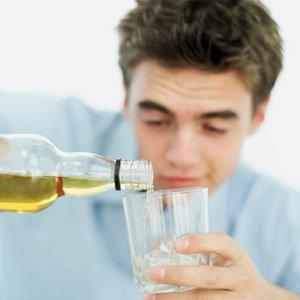Legal Consequences for Allowing Underage Drinking at Your Party
 As the season for high school and college graduation parties rolls around, many parents and other party hosts face the difficult task of having to monitor their guests’ alcohol consumption. Typically risks may arise with two types of guests: those who are intoxicated who may pose a risk to themselves and others, and guests under the age of 21 who try to consume alcohol. This article focuses on the second risk area regarding alcohol consumption of underage guests. If you are planning on throwing a party where alcohol will be served, it is helpful to keep in mind the risks and protections afforded by Illinois law.
As the season for high school and college graduation parties rolls around, many parents and other party hosts face the difficult task of having to monitor their guests’ alcohol consumption. Typically risks may arise with two types of guests: those who are intoxicated who may pose a risk to themselves and others, and guests under the age of 21 who try to consume alcohol. This article focuses on the second risk area regarding alcohol consumption of underage guests. If you are planning on throwing a party where alcohol will be served, it is helpful to keep in mind the risks and protections afforded by Illinois law.
Alcohol Consumption of Minors
Illinois criminal and civil laws work in tandem to deter and penalize party hosts, also known as “social hosts” from permitting underage guests to consume alcohol.
First, under the Liquor Control Act of 1934, it is illegal for individuals over the legal drinking age of 21 to buy alcohol for the purpose of supplying the alcohol to a person who is under the legal drinking age. Moreover under the recent amendments, it is likewise unlawful to host a gathering where individuals under age 21 are consuming alcohol. However, parents may serve alcohol to their own child at home as long as the child is supervised while he or she is drinking the alcohol.
Second, the Drug or Alcohol Impaired Minor Responsibility Act sets forth financial penalties for individuals who knowingly serve alcohol to a child under age 18. The law makes the person who served alcohol financially responsible for consequences that stem from the child’s intoxication such as property destruction or injury. The Act also applies to parents who lawfully allow their children to consume alcohol at home while supervised. This means the parent can nonetheless be sued for damages caused by the child’s actions while he or she is intoxicated.
Penalties
Individuals who violate the Liquor Control Act and or the Drug or Alcohol Impaired Minor Responsibility Act may incur civil liability and or face criminal charges and fines or jail time. Hosts convicted of permitting an underage person at their party to consume alcohol may be criminally charged with a Class A misdemeanor and fined $500.00 per offense. If the alcohol consumption in question directly or indirectly results in great bodily harm or death to any person, the host may be charged with a Class 4 felony. Hosts who serve alcohol to minors that result in damage may likewise be convicted of a felony or misdemeanor offense, depending on the damage caused.
Moreover, the host may be sued in civil court and ordered to pay damages. These damage costs under the statute may include economic damages such as medical expenses and lost wages, non-economic damages such as emotional pain and suffering, reasonable attorneys fees and court costs, and punitive damages if the defendant’s conduct was particularly egregious.
Protecting Yourself as a Social Host
As outlined above, there can be severe criminal, financial, and emotional consequences for letting underage party guests sneak a few beers. The following steps may help a social host protect him- or herself during graduation party season:
- If you can afford it, have your graduation party at a restaurant or banquet hall. This way, someone besides you will be responsible for ensuring underage guests do not drink.
- If you find yourself hosting a party where you suspect underage people may be consuming alcohol, it may be helpful to take the following precautions:
- Make your expectations about restrictions to alcohol use clear to all guests beforehand as well as your children who may be inviting underage friends. Reinforce your expectations throughout the party.
- Group all alcohol sources together in one location. Make this location viewable by you or trusted adults at the party.
- Institute a mandatory sleepover policy for all underage guests and have them surrender their keys upon arrival. While this will not prevent young people from drinking on your premises, it will help to alleviate some of the most catastrophic consequences associated with underage drinking.
Even after taking precautions, you still may be liable if underage drinking occurs on your premises. If you suspect underage drinking is taking place at your party, the law provides a safe harbor for social hosts who act promptly to contact the police for assistance in breaking up your gathering or enforcing your no alcohol rules. Thus, if you feel like your party has become a dangerous situation you can no longer control, promptly contacting the police for assistance may be your safest legal option.
If you or someone you know has been charged or is anticipating being charged with violating Illinois’s Liquor Control Act, the attorneys at Kathryn L. Harry & Associates, P.C. have broad experience handling state drug and alcohol law violations. Contact us at 630-472-9700 for a free consultation about your legal problem.
 1200 Harger Road, Suite 830, Oak Brook, IL 60523
1200 Harger Road, Suite 830, Oak Brook, IL 60523







